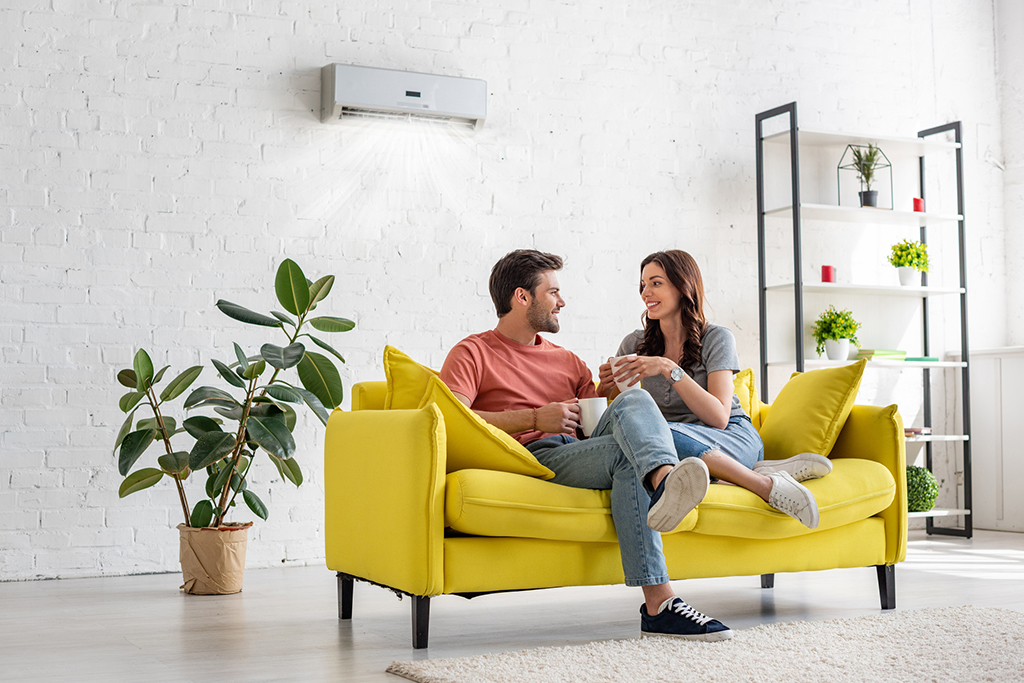If you’re thinking about air conditioner installation it can be hard to know which kind of system to go for. There are many different types of ACs. The range of choice can be overwhelming if you’re not an expert. If you need air conditioner installation in a hurry because your home is overheating, you may feel under pressure to make a quick decision. Here are some of the most common types of AC systems popular with Minneapolis, MN homeowners.
1. Central Air Conditioners
Central air conditioners are the most popular type of system because they can cool large homes efficiently. They work by transporting cool air into your living space through supply ducts located in the wall or floor. When the air has warmed up, it is drawn back inside to be cooled again by the AC unit.
Before you have a central air conditioner installation carried out, it’s important to make sure that you’re getting a system that’s the correct size for your house. Even an efficient system will raise your utility bills if you have the wrong size installed.
2. Mini-Split Air Conditioners
It might be a good idea to have a mini-split air conditioner installation carried out if you only want to cool certain rooms in your home. These systems can have up to four handling units and work in a similar way to central air conditioners, although you can control each unit using its own thermostat. This type of system could also be a good option if you want to have an installation in a retrofitted room or if you heat your home with a boiler.
3. Window Air Conditioners
This type of unit requires an air conditioner installation in the window of a particular room in your home. They are also sometimes known as unitary units. A window air conditioner won’t be able to cool large living spaces efficiently, so they are best used in compact apartments or smaller individual rooms.
4. Heat Pump Air Conditioners
Heat pump air conditioning systems can heat and cool your home. During the summer the heat pump works just like a central air conditioning system by moving the hot air trapped inside the home and transferring it to the outside. The opposite holds true during the heating season, the condenser on the outside extracts heat molecules from the ambient air and transfers them to the coil on top of the air handler releasing the heat into the home. When temperatures outdoors reach a point where the heat pump cannot extract any more heat molecules the auxiliary heat kicks in either by a gas or electric heat furnace. This system has earned a nickname of a hybrid system, being able to switch from heat pump to furnace without missing a beat.
5. Portable Units
Portable air conditioners are an affordable option that don’t require specialist air conditioner installation. They work in a similar way to window units by pulling in warm air from your home, cooling it and then releasing it back out. Portable units can only cool one room of your home at a time. The warm air gathered by the unit is transported outside through a window via an exhaust hose.
Factors to Consider
Even if you have a good idea of the type of air conditioning system you want, it’s important to consider your home setup when choosing a model. Here are some important factors that you should think about before making a decision.
Sizing
When it comes to cooling size counts a lot, be sure to ask your contractor to do a load calculation such as found in Manual J. The load calculation considers the homes thermal envelope and well as the occupants in it. A system that is too small will not achieve your desired temperature on the hottest days of the year and may run continuously trying to catch up. On the other hand, a system that is oversized will reach the temperature too quickly and turn off. This situation may cause too much latent heat (humidity) left behind. There is a fine balance between too small and too large of an air conditioning system. Take the time to size it correctly.
Equipment Features
Yes, you have options. Do you want a quiet air conditioner, hail guards, efficiency and warranty, just to name a few? All air conditioners come with factory specification and sound is one of them. These units are rated by decibel ratings and the lower the number the quieter the system. If it is located next to your deck or bedroom window this could be a deciding factor. Hail guards are something to consider; they will protect your investment from hail, lawn mower or any object that may want to damage the coils behind the louvered framework. If your unit is in a high traffic area you may want to consider this option. Nobody wants to spend more than they must to keep cool. Air conditioners have an energy rating kind of like cars have MPG. Air conditioners are rated on the SEER (Season Energy Efficiency Ratio) and the higher the number the more energy efficient the equipment is. This may well be the most important factor but fear not due to government guidelines even the minimum system is twice as efficient as their processor of only ten years ago. Warranty is another consideration be sure to get it in writing from a reliable company. There are two sides to your warranty, part from the factory and part labor from the dealer. Most manufacturers offer a one, five or even ten-year parts warranty. Be careful, some factory warranties require registration in a timely fashion 60-90 days. The labor warranty is up to the dealer so it’s important to select a company that has been around for a while because if the dealer is out of business and your air conditioner needs repair you are out of luck too.
The Bottom Line
Choosing a system for your air conditioner installation can be confusing because there’s so much choice out there. If you’re still unsure, it’s a good idea to ask an expert to help you choose the best system for your needs and home. Get in touch with Blue Ox Heating & Air for help with all your air conditioning needs. We provide a range of services for the community in Minneapolis, MN, from help choosing and installing an air conditioner to AC repair and servicing.


